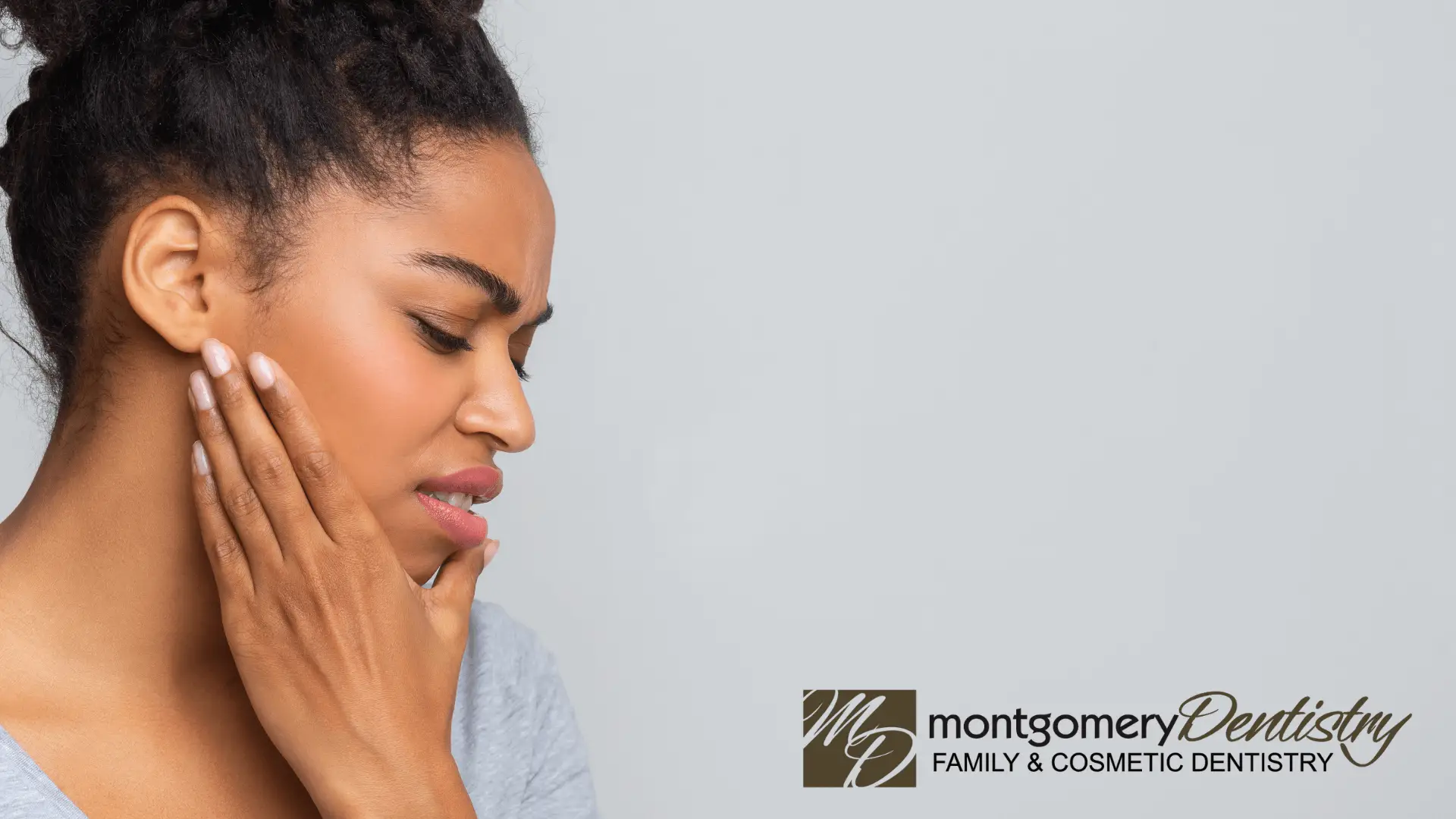Did you know that November is TMJ Awareness Month? In order to bring more awareness to this disorder, we wanted to answer some of the most common questions asked concerning TMJ!
What is TMJ?
TMJ refers to the temporomandibular joint that is made up of the muscle and ligaments that connect your jaw to your skull. When people think of joints, they normally think of their knee or elbow or maybe even their hip. However, the temporomandibular joint enables you to open and close your mouth anytime you talk, eat, drink, and laugh.
Where exactly is your temporomandibular joint? Finding it is easy! Simply place two fingers along either side of your face just in front of your ear and slowly open and close your mouth. The movement you are feeling is your jaw interacting with your skull via the temporomandibular joint!
TMJ vs TMD
While TMJ scientifically refers to the joint itself, most of the time when people talk about TMJ, they are referring to a type of temporomandibular disorder or TMD. There are more than 30 different conditions that qualify as TMD, and TMJ Disorder is one of them. For the sake of this blog, when we reference TMJ, we are referring to the disorder affecting the joint.
TMJ disorder occurs when something goes wrong with your jaw joints and muscles. When healthy, your temporomandibular joint moves smoothly and freely without discomfort. When damaged or dysfunctional, a wide range of symptoms can arise ranging from jaw tenderness to severe pain and headaches.
Symptoms and Causes of TMJ
How do you know you have TMJ? While a dental or medical professional diagnoses this disorder, there are several common symptoms associated with TMJ including:
- Pain or tenderness of your jaw
- Aching in and around your ear
- Headaches
- Difficulty opening your mouth wide or locking of your jaw
- Difficulty chewing
TMJ can be caused by traumatic injury to the jaw, inflammatory conditions like arthritis, or wear and tear from overuse. Other common causes of TMJ pain include:
- Grinding or clenching of teeth (Bruxism)
- Improperly aligned jaw or bite
- Dislocation of the disc
- Stress
Is TMJ a Medical or Dental Problem?
Determining whether an individual’s case of TMJ is a medical or dental problem is usually based on what has caused the disorder. For example, TMJ can be a side effect for someone suffering with arthritis which causes inflammation in the joints. The root cause of arthritis is a medical condition and, therefore, should be treated by a medical professional.
TMJ can by nature also be a dental problem, especially when it is caused by an underlying issue with an individual’s teeth such as teeth grinding. A dental consultation can reveal the signs of teeth grinding such as cracks in the enamel. Once identified, a treatment plan can be recommended to help reduce jaw pain.
TMJ Treatment
If you are experiencing TMJ symptoms or have been diagnosed with TMJ, do not worry! It is estimated that over 10 million adults in the United States experience jaw pain. TMJ is most common in individuals between the ages of 20 and 40 and is found to be more common in women than in men.
For many individuals, TMJ symptoms do not last long and will usually go away without treatment or can easily be treated with simple self-care, over-the-counter medication, or mouthpieces to prevent teeth grinding. Self-care practices include:
- Relax your jaw and limit extreme movements.
- Often you will find yourself clenching your jaw without thinking about it. Be intentional about loosening your jaw and relaxing those muscles.
- Try to minimize movements that widen your jaw such as yawning, yelling, and chewing large bites.
- Apply heat or cold packs to your jaw for 15-20 minutes at a time.
- While heat will relax your jaw muscles and increase blood flow, cold will reduce inflammation and soothe the pain.
- Make sure you are getting good sleep.
- Reduce strain on your jaw by sleeping on your back with your neck well supported.
- Avoid sleeping on your stomach and if you are a side sleeper, keep your hand away from your jaw.
- Eliminate bad habits that can cause jaw pain.
- These habits include nail biting, taking too large of bites while eating, resting your jaw in your hand, and chewing on your lip.
- Exercise your jaw muscles.
- TMJ exercises can help strengthen, stretch, and relax the jaw, as well as, increase mobility and promote healing.
- Check out these TMJ Exercises for Pain Relief!
For some individuals, depending on the cause of their jaw pain, less conservative treatments may be needed. While TMJ surgery is the best option for some, it is very important for you to discuss all of your options with your dentist and/or medical professional so that you can make an informed decision.
Now that you are more aware of TMJ, if you are experiencing jaw pain and would like to come in for a consultation, reach out to us and we would love to talk with you!
About the Author
-

Dr. Jay L. Robertson
Dr. Jay Robertson joined our practice in July 2008. He is from Montgomery and is a graduate of Saint James School, Birmingham-Southern College, and the University of Alabama, Birmingham School of Dentistry. He is a member of the American Dental Association, the Alabama Dental Association and the Academy of General Dentistry.
Dr. Robertson and his wife Jennifer have four children, John Campbell, Julian, Lowe, and Ansley.
Dr. Robertson serves on the board of the Montgomery Quarterback Club and is a member of the First United Methodist Church of Montgomery. When not at work, Dr. Robertson enjoys all things sports, including Auburn, golf, and his children’s various sports.
